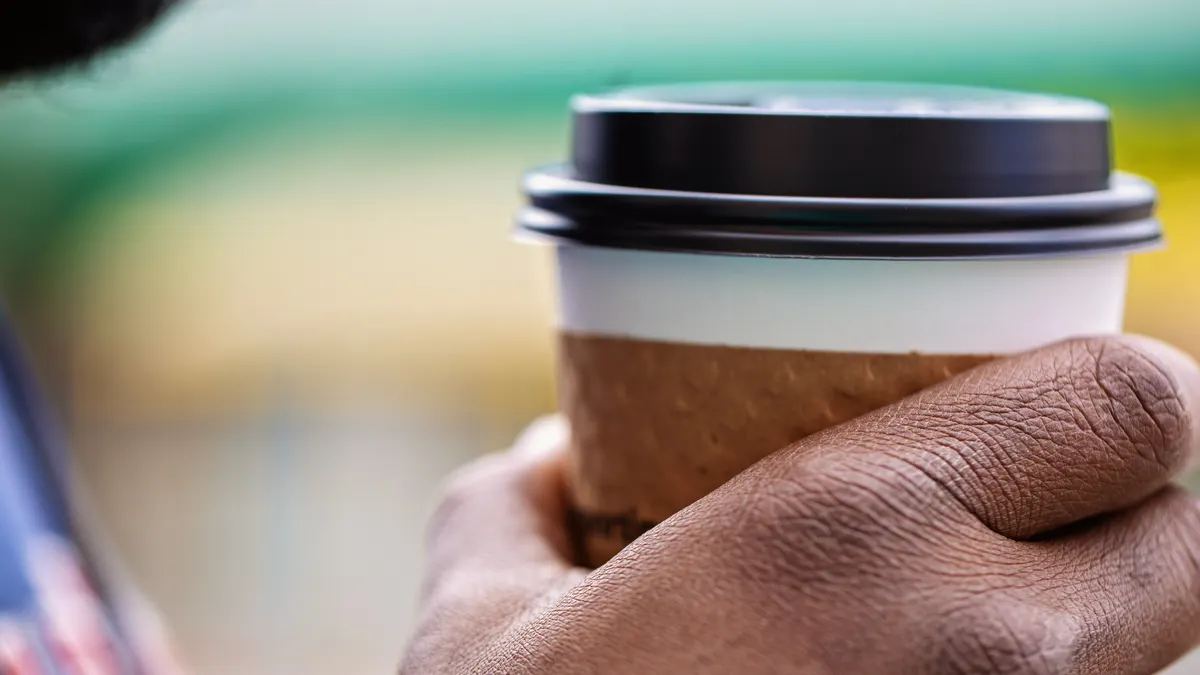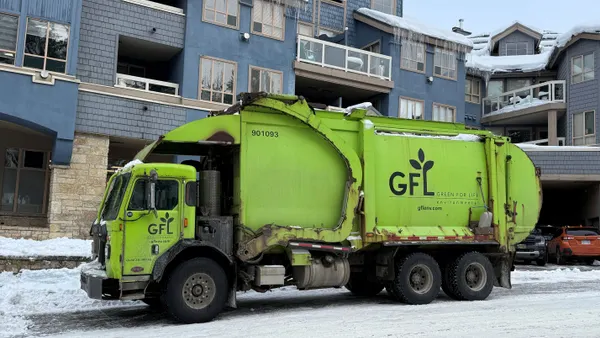Dive Brief:
- WM has added both PP plastic cups and paper to-go cups to its universal list of accepted recyclable materials across its collection network, a move meant to boost material collection in curbside bins.
- WM says its recent MRF automation upgrades have made it easier to sort the cups and incorporate them into bales it already produces, making it more economically and logistically feasible to collect higher volumes, a WM spokesperson said in an email.
- WM says the paper and plastic cups are “valuable recyclable materials,” and more end markets are now interested in the them. WM also expects that other companies and municipalities will start to accept the same materials in curbside bins as a result of its announcement.
Dive Insight:
Paper and plastic cups have long entered WM’s MRFs whether the company officially accepted them or not, and they “are showing up in greater volumes at our facilities," said Tara Hemmer, chief sustainability officer, in a statement.
The new move to officially add them to its accepted materials list is the latest step in the company’s efforts to collect higher volumes of material and produce cleaner streams. WM has been upgrading or building new automated MRFs around the country, spending a total of about $1.4 billion on infrastructure improvements to make that sortation process easier.
WM is also aligning its streams with recent specification updates. The Recycled Materials Association earlier this year announced it would add paper cups to its materials specifications list to boost recycling acceptance. The Foodservice Packaging Institute had long been advocating for mill acceptance, which helped spark the ReMA decision.
That specification is significant for paper cup producers such as Graphic Packaging International. The packaging company is a major user of recovered fiber and was influential in getting ReMA to add cups to that specification. It started operations at a new recycled paperboard mill in October that is expected to consume up to 15 million cups per day as feedstock.
Other mills run by companies like Pratt Industries, Smurfit Westrock and Sonoco are also major markets for WM’s paper cups, a WM spokesperson said.
Tackling a wider stream of PP materials was also important for WM because the company has already recycled other kinds of that polymer “for many years,” a spokesperson said. WM has increased the amount of PP it recycles by 150% since 2019. The company did not specify specific end markets for the cups, but said it sees demand for reclaimed plastic cups from manufacturers of items like paint cans, plastic lumber, pallets and crates.
Citing The Recycling Partnership's State of Recycling Report, WM said in a news release that many households already generate the same amount of PP for recycling as they do for HDPE, “yet the recycling rate for polypropylene is one-third of what it is for HDPE.”
Select recycling companies, like Rumpke Waste & Recycling, have also started accepting paper and plastic cups in certain regions they serve. But many other major companies still don’t include plastic cups on their main recycling lists.
WM says adding the cups to its accepted materials list also could help the items achieve recycling designations set by How2Recycle, an organization that creates packaging labels to indicate an item’s recyclability.
WM says PP cups are “approaching” a qualification to be considered Widely Recyclable under How2Recycle’s designation, meaning more than 60% of U.S. residents could recycle plastic beverage cups curbside.
The company adding paper beverage to-go cups may also help the items reach How2Recycle’s “Check Locally” designation, meaning at least 20% of communities accept them in curbside recycling collection.
Though the plastic and paper cups are now officially on WM’s accepted materials list, it doesn’t automatically apply to all curbside programs served by WM. Some municipalities maintain their own lists, while other locations are still using lists from legacy contracts, WM said. The company encouraged its customers and municipalities to add these items as well.
WM says it’s also working with municipalities, The Recycling Partnership, Closed Loop’s NextGen Consortium and the National League of Cities to “drive awareness and update recycling guidelines of what materials can be accepted in communities through curbside or drop-off programs.”














